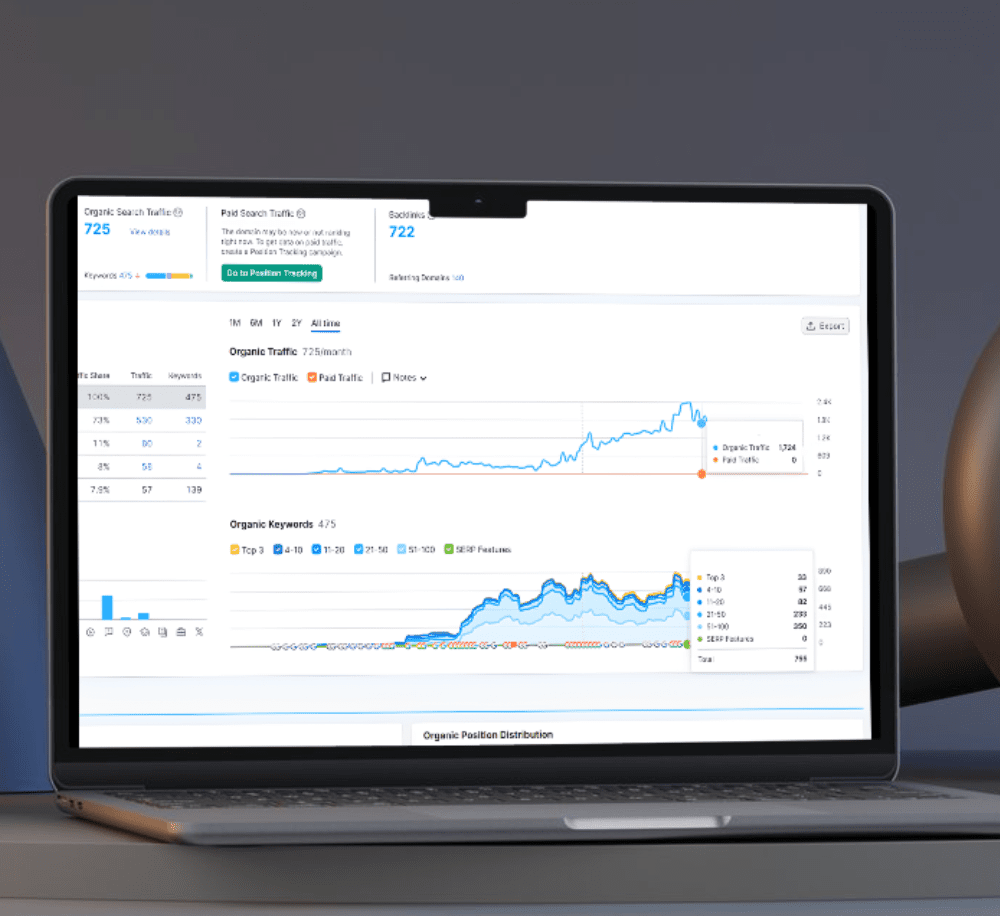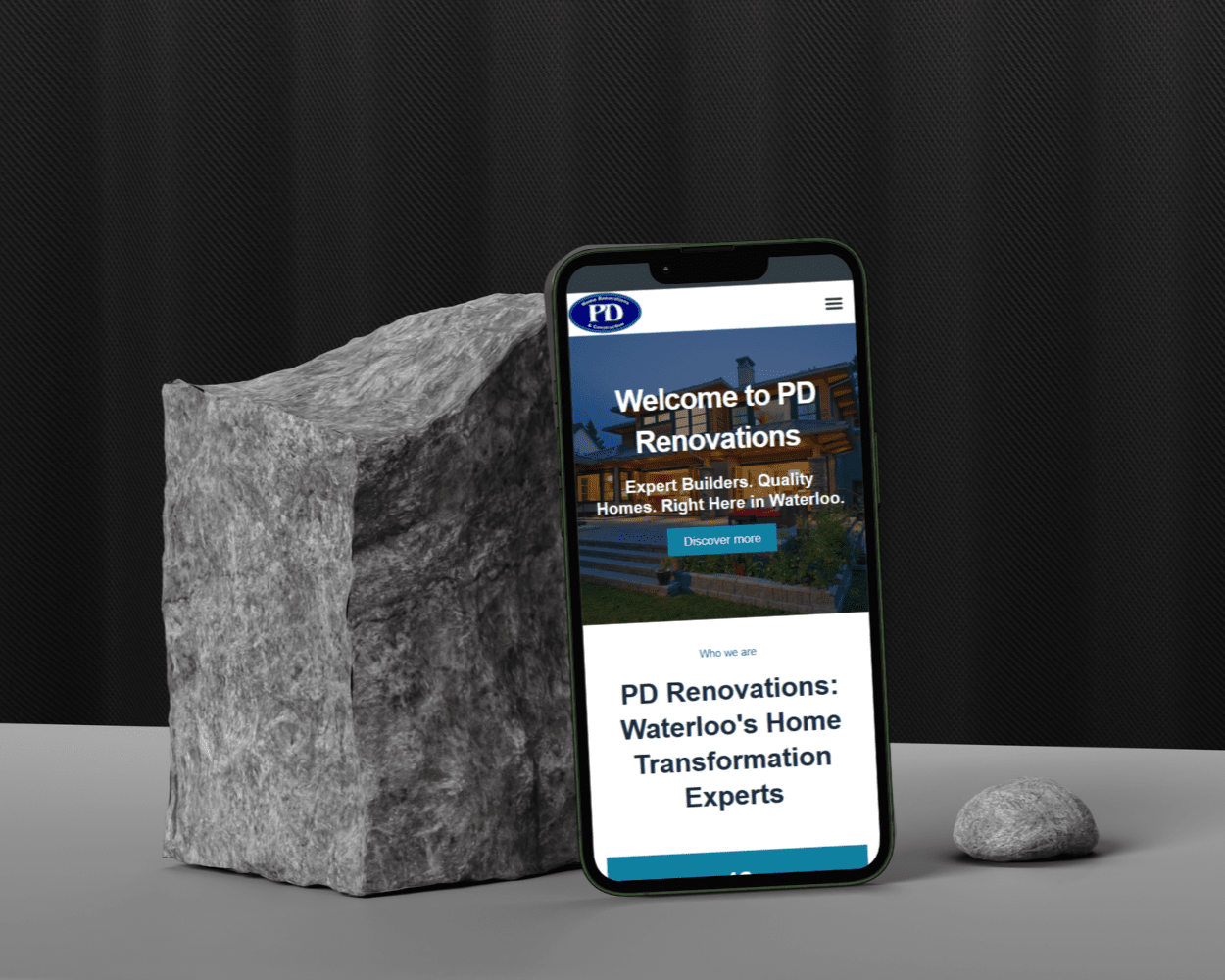Introduction to Digital Marketing for Construction Companies
In today’s digitally-driven world, digital marketing has become an indispensable tool for construction companies aiming to expand their client base and achieve sustainable growth. The construction industry, traditionally reliant on word-of-mouth and offline marketing methods, is increasingly recognizing the need for a robust online presence to stay competitive. A well-crafted digital marketing strategy not only enhances your visibility but also helps differentiate your company in a crowded market.
A strong online presence is the foundation of successful digital marketing. It involves creating and maintaining an engaging, informative, and user-friendly website that serves as the digital face of your construction business. This online hub should effectively communicate your brand values, showcase your portfolio, and provide potential clients with easy access to your services. Additionally, optimizing your website for search engines (SEO) ensures that your company appears prominently in search results, making it easier for prospective clients to find you.
Beyond SEO, digital marketing encompasses various strategies, including pay-per-click (PPC) advertising, social media marketing, and content creation. PPC campaigns can drive targeted traffic to your website, generating leads and conversions efficiently. Social media marketing, on platforms such as LinkedIn, Facebook, and Instagram, allows you to connect with your audience, build relationships, and promote your projects in a visually appealing manner. Content marketing, through blogs, articles, and videos, establishes your company as an industry thought leader and keeps your audience engaged with valuable insights.
Throughout this blog post, we will delve deeper into these key digital marketing strategies, providing actionable tips and best practices tailored specifically for construction companies. By implementing these strategies, you can enhance your online presence, attract more clients, and ultimately, drive your business growth in the competitive construction market.
Understanding SEO for Construction Companies
Search Engine Optimization (SEO) is an essential component of digital marketing, particularly for construction companies looking to enhance their online presence. At its core, SEO involves optimizing your website and online content to rank higher in search engine results, making it easier for potential clients to find your services. Given the competitive nature of the construction industry, effective SEO strategies can significantly impact your visibility and lead generation.
Keyword research is the foundation of any successful SEO campaign. For construction companies, this means identifying the search terms and phrases most relevant to your services and target audience. Keywords like “construction services,” “commercial building contractors,” and “residential construction” are examples of terms prospective clients might use. Tools such as Google Keyword Planner and SEMrush can assist in discovering high-traffic, low-competition keywords that can give your company a competitive edge.
On-page SEO focuses on optimizing various elements within your website. This includes meta titles, meta descriptions, header tags, and content. For instance, incorporating relevant keywords naturally into your content, while ensuring it remains informative and engaging, can improve your rankings. Additionally, optimizing images with alt text, improving website speed, and ensuring mobile-friendliness are crucial on-page factors that search engines consider.
Off-page SEO, on the other hand, involves activities conducted outside your website to improve its authority and relevance. This primarily includes building high-quality backlinks from reputable industry websites, which signal to search engines that your site is trustworthy. Participating in industry forums, guest blogging, and leveraging social media platforms can also enhance your off-page SEO efforts.
Optimizing your website content for SEO involves more than just keyword placement. It’s about creating valuable, high-quality content that addresses the needs and concerns of your audience. Blog posts, case studies, project showcases, and client testimonials are excellent content types that can engage visitors and keep them returning to your site. Regularly updating your content and maintaining a content calendar can help keep your SEO efforts consistent and effective.
Incorporating these SEO strategies into your digital marketing plan can significantly boost your construction company’s online presence, ultimately driving more traffic and generating more leads.
Harnessing the Power of PPC Advertising
Pay-Per-Click (PPC) advertising stands out as an incredibly effective approach to drawing potential clients to your construction company. By leveraging PPC, you can ensure that your ads appear at the top of search engine results, thereby increasing your online presence and attracting a targeted audience actively seeking construction services.
Setting up a PPC campaign begins with selecting the right platform. Google Ads and Bing Ads are popular choices due to their extensive reach and robust targeting options. To start, create an account on your chosen platform and identify keywords relevant to your construction business. Keywords should be specific to the services you offer, such as “residential construction,” “commercial building,” or “renovation services.”
Creating compelling ad copy is crucial for PPC success. Your ads should be concise, clear, and compelling, highlighting unique selling points like years of experience, certifications, or special offers. Including a strong call-to-action (CTA) such as “Get a Free Quote” or “Contact Us Today” can encourage potential clients to click on your ad. Additionally, utilizing ad extensions, like site link extensions, can provide extra information and increase the visibility of your ads.
Targeting the right audience is another essential aspect of PPC advertising. Platforms like Google Ads allow you to target ads based on various parameters, including location, demographics, and search behavior. For a construction company, targeting local audiences within your service area ensures that your ads reach people who are likely to need your services.
Budgeting effectively is vital for maximizing your PPC campaigns. Start with a daily or monthly budget that you are comfortable with and monitor your spending closely. Adjust bids based on the performance of your keywords and ads to ensure you are getting the best return on investment (ROI).
Measuring the success of your PPC campaigns involves tracking key metrics such as click-through rate (CTR), conversion rate, and cost-per-conversion. These metrics provide insights into how well your ads are performing and whether they are driving tangible results for your construction business. Utilizing conversion tracking tools available on Google Ads and Bing Ads can help you understand which keywords and ads are generating leads and sales, allowing you to refine and optimize your campaigns further.
By harnessing the power of PPC advertising, construction companies can significantly enhance their online presence, attract more clients, and achieve measurable growth in their digital marketing efforts.
Leveraging Social Media for Brand Awareness
Social media platforms offer excellent opportunities for construction companies to build brand awareness and engage with potential clients. By strategically leveraging platforms like LinkedIn, Facebook, Instagram, and Twitter, construction businesses can effectively enhance their online presence and reach a broader audience.
LinkedIn is particularly beneficial for construction companies due to its professional networking environment. Companies can share industry insights, project updates, and company news to connect with other professionals and potential clients. Engaging in LinkedIn groups related to construction and participating in discussions can also help build credibility and visibility within the industry.
Facebook provides a versatile platform for construction companies to post project photos, client testimonials, and behind-the-scenes content. Facebook Pages enable businesses to interact with a diverse audience through comments and messages, fostering a sense of community and trust. Additionally, Facebook Ads can be used to target specific demographics, ensuring that marketing efforts reach the most relevant audience.
Instagram, with its visual-centric approach, is ideal for showcasing the aesthetic aspects of construction projects. High-quality images and videos of completed projects, work-in-progress, and time-lapse videos can captivate potential clients. Utilizing Instagram Stories and IGTV for updates and tutorials can further enhance engagement and brand visibility.
Twitter, known for its real-time updates, allows construction companies to share quick updates, industry news, and engage in trending conversations. Using relevant hashtags can extend the reach of tweets, while interacting with followers and industry influencers can build a robust online presence.
Creating engaging content is crucial across all these platforms. Content should be informative, visually appealing, and tailored to the audience’s interests. Regular posting schedules and consistency in messaging help maintain follower interest. Moreover, leveraging social media advertising can amplify reach. Paid promotions, sponsored posts, and targeted ads can drive traffic to the company’s website or landing pages, generating leads and increasing brand awareness.
Incorporating these strategies into a comprehensive digital marketing plan can significantly boost a construction company’s online presence, allowing it to stand out in a competitive market.
Creating Engaging Content to Attract Clients
In the realm of digital marketing, content is king, and for construction companies, producing engaging content is an essential strategy for attracting and retaining clients. Content marketing provides a means to showcase your expertise, build trust, and ultimately, drive more business. Various types of content can resonate well with your target audience, including blog posts, case studies, videos, and infographics.
Blog posts are foundational elements of content marketing. They offer an opportunity to provide valuable information, share insights, and address common questions your clients may have. Topics can range from industry trends and project updates to tips on choosing the right construction firm. Regularly updating your blog with high-quality content not only keeps your audience engaged but also improves your SEO, making it easier for potential clients to find you online.
Case studies are another powerful tool. They highlight specific projects you’ve completed, detailing the challenges faced and the solutions provided. By showcasing your successes and demonstrating your problem-solving capabilities, you can build credibility and showcase your expertise to prospective clients.
Videos are particularly effective in the construction industry, where visual content can vividly illustrate your capabilities and completed projects. Whether it’s a time-lapse of a construction project, client testimonials, or behind-the-scenes looks at your team at work, video content can captivate and inform your audience in ways that text alone cannot.
Infographics, on the other hand, are excellent for distilling complex information into easily digestible visuals. They can be used to explain processes, present industry statistics, or highlight your company’s achievements. Infographics are highly shareable on social media platforms, extending your reach and engagement.
Developing a content strategy that aligns with your business goals is crucial. Begin by identifying your target audience and their needs. Create a content calendar to ensure consistent posting and diversify your content types to keep your audience engaged. Effective distribution is equally important; leverage your website, social media channels, email newsletters, and industry forums to maximize your content’s reach and impact.
In the realm of digital marketing for construction companies, a user-friendly website serves as the cornerstone of your online presence. This crucial platform often constitutes the first impression potential clients have of your business. Therefore, ensuring your website is both functional and visually appealing is paramount.
Intuitive Navigation
Intuitive navigation is essential in guiding visitors to the information they seek without confusion or frustration. A well-structured menu that clearly categorizes services, projects, and contact details can significantly enhance user experience. Utilizing breadcrumb trails and a search bar can further simplify the user journey, making it effortless for visitors to find pertinent information.
Mobile Responsiveness
With a significant portion of web traffic coming from mobile devices, a mobile-responsive design is non-negotiable. A site that adapts seamlessly to various screen sizes not only improves accessibility but also positively impacts your search engine optimization (SEO) efforts. Google prioritizes mobile-friendly websites, making it a critical aspect of your digital marketing strategy.
Fast Loading Times
Fast loading times are another vital component. Slow websites can deter potential clients, leading to higher bounce rates and lower engagement. Optimizing images, leveraging browser caching, and minimizing code are effective strategies to enhance load speed. Tools like Google PageSpeed Insights can help identify and rectify performance issues, ensuring a smooth and swift user experience.
Clear Calls-to-Action
Clear calls-to-action (CTAs) are essential in guiding visitors towards taking desired actions, such as requesting a quote or scheduling a consultation. Strategically placed CTAs that stand out visually can drive conversions and foster client engagement. Ensure that these buttons are easy to find and compelling enough to prompt interaction.
Showcasing Portfolio and Testimonials
Lastly, showcasing your portfolio and client testimonials is indispensable in building credibility and trust. High-quality images of completed projects and positive client feedback serve as powerful endorsements. These elements not only highlight your expertise but also establish a sense of reliability and professionalism, crucial in the competitive construction industry.
By focusing on these aspects, construction companies can significantly enhance their online presence, making their digital marketing efforts more effective and ultimately driving business growth.
Utilizing Email Marketing for Client Retention
Email marketing is a vital tool for construction companies aiming to nurture relationships and maintain an active presence in clients’ minds. Establishing a robust email marketing strategy begins with building a quality subscriber list. Collect email addresses through various touchpoints, such as your website, social media channels, or during client interactions. Ensure you have permission to send emails to these contacts to comply with regulations and maintain trust.
Personalization and relevance are crucial in email marketing. Tailor your content to meet the specific needs and interests of your clients. Segment your subscriber list based on factors like project type, client preferences, and engagement history. By sending targeted emails, you can provide value and build stronger connections. For instance, share updates on ongoing projects, industry news, or tips for property maintenance, ensuring the content is informative and directly beneficial to the recipient.
Creating engaging and professional email designs is also essential. Use a consistent layout and include your construction company’s branding elements. Incorporate clear calls to action (CTAs) to guide recipients towards desired actions, such as visiting your website, reading a blog post, or contacting you for more information.
Measuring the success of your email campaigns is critical to refining your strategies. Utilize analytics tools to track key metrics, such as open rates, click-through rates (CTRs), and conversion rates. These insights will help you understand what resonates with your audience and identify areas for improvement. Regularly A/B test different elements of your emails, including subject lines, content, and CTAs, to optimize performance.
Automation can significantly enhance your email marketing efforts by saving time and ensuring consistency. Set up automated workflows for tasks like welcome emails, follow-ups, and re-engagement campaigns. This allows you to maintain regular communication with clients without requiring constant manual effort.
By leveraging email marketing effectively, construction companies can strengthen client relationships, enhance their online presence, and foster long-term loyalty. With a strategic approach, email marketing can be a powerful component of your digital marketing arsenal.
Measuring and Analyzing Your Digital Marketing Efforts
To ensure the success of your digital marketing strategies, it is crucial for construction companies to track and analyze their efforts diligently. By closely monitoring key performance indicators (KPIs), you can gain valuable insights into the effectiveness of your campaigns and make data-driven decisions to enhance your online presence.
One of the primary KPIs to monitor is website traffic. This metric provides a clear view of how many visitors are accessing your site and can be segmented by source, such as organic search, paid advertisements, or social media. Tools like Google Analytics offer comprehensive data on user behavior, including page views, session duration, and bounce rate, helping construction companies understand the user journey and identify areas for improvement.
Conversion rates are another critical KPI for digital marketing. Conversion tracking allows you to measure the percentage of visitors who complete a desired action, such as filling out a contact form, downloading a brochure, or requesting a quote. By analyzing conversion rates, construction companies can determine the effectiveness of their landing pages, calls-to-action, and overall user experience. A/B testing different elements of your website and marketing materials can help optimize these conversions over time.
Social media engagement is also a vital metric to monitor. By tracking likes, shares, comments, and followers, you can gauge the impact of your social media marketing efforts and understand what content resonates most with your audience. Tools like Hootsuite and Sprout Social offer detailed analytics on social media performance, enabling construction companies to refine their content strategy and foster stronger connections with their audience.
Utilizing these KPIs alongside advanced tools and techniques for data analysis will empower you to make informed decisions. Regularly reviewing and interpreting this data ensures that your digital marketing campaigns remain dynamic and effective, ultimately improving your online presence and driving business growth.




